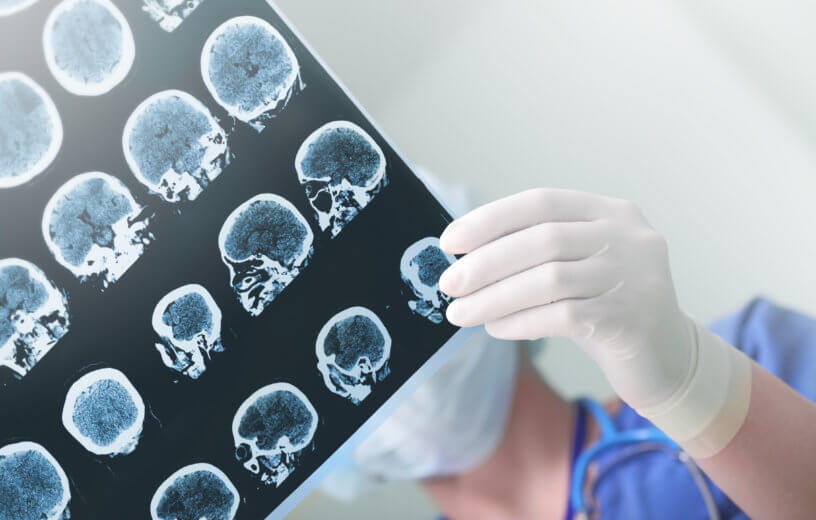CAMBRIDGE, United Kingdom — Almost half of the individuals who suffer a concussion continue to exhibit symptoms of brain injury six months later, according to new research. This highlights the importance of understanding the long-lasting effects of concussions, even those classified as mild.
Scientists assert that even mild concussions can cause long-lasting effects on the brain. Researchers from Cambridge University discovered that in nearly one out of every two patients who sustain a head injury, there are alterations in the way different brain regions communicate with each other. This can potentially lead to long-term symptoms such as fatigue and cognitive impairment.
“At present, we have no clear way of working out which of these patients will have a speedy recovery and which will take longer, and the combination of over-optimistic and imprecise prognoses means that some patients risk not receiving adequate care for their symptoms. Our research aims to address this gap in our understanding and improve patient outcomes,” says Dr. Emmanuel Stamatakis from the Department of Clinical Neurosciences and Division of Anesthesia at Cambridge.
Concussion, or mild traumatic brain injury, results from a knock or jolt to the head and can occur due to incidents such as falls, sports injuries, cycling accidents, or car crashes. Although it is labeled as “mild,” concussions are often associated with persistent symptoms and incomplete recovery, including depression, cognitive impairment, headaches, and fatigue.

“Despite there being no obvious structural damage to the brain in routine scans, we saw clear evidence that the thalamus – the brain’s relay system – was hyperconnected. We might interpret this as the thalamus trying to over-compensate for any anticipated damage, and this appears to be at the root of some of the long-lasting symptoms that patients experience. Our findings suggest that we need to reevaluate our understanding of what constitutes a ‘mild’ concussion and the long-term consequences it may have on patients,” adds Rebecca Woodrow, a PhD student in Cambridge’s Department of Clinical Neuroscience, in a media release.
By analyzing additional data from positron emission tomography (PET) scans, which can measure the regional chemical composition of body tissues, the researchers were able to associate specific neurotransmitters with the long-term symptoms a patient displayed. For instance, patients with cognitive issues, such as memory problems, showed increased connectivity between the thalamus and brain areas rich in the neurotransmitter noradrenaline. Meanwhile, patients with emotional symptoms, such as depression or irritability, exhibited greater connectivity with brain regions rich in serotonin.
“We know that there are already drugs that target these brain chemicals, so our findings offer hope that in the future, not only might we be able to predict a patient’s prognosis, but we may also be able to offer a treatment targeting their particular symptoms. This personalized approach to treatment could significantly improve the quality of life for those suffering from the long-term effects of concussions,” Dr. Stamatakis concludes.
The research conducted by Dr. Stamatakis and his team highlights the need for continued investigation into the long-lasting effects of concussions, as well as the development of more accurate prognostic tools and targeted treatments. By increasing our understanding of how concussions impact the brain, medical professionals can better support patients on their road to recovery.
The findings are published in the journal Brain.
What are the symptoms of a concussion?
Symptoms of a concussion can vary depending on the severity of the injury and the individual affected. They can be both physical and cognitive in nature and may appear immediately following the injury or develop over hours or days. Some common symptoms of a concussion include:
- Headache: This is often the most common symptom, ranging from mild to severe.
- Confusion or disorientation: The person may have difficulty remembering the events surrounding the injury or feel “foggy.”
- Dizziness or balance problems: Individuals may experience unsteadiness or have difficulty maintaining their balance.
- Nausea and vomiting: Concussions can cause feelings of nausea, and some people may vomit.
- Fatigue or drowsiness: A person may feel unusually tired or have difficulty staying awake.
- Blurred or double vision: Vision problems, including difficulty focusing, can be a symptom of a concussion.
- Sensitivity to light and noise: Bright lights or loud noises may cause increased discomfort after a concussion.
- Sleep disturbances: Trouble falling asleep, staying asleep, or experiencing changes in sleep patterns can occur.
- Memory problems or difficulty concentrating: People with concussions may struggle with short-term memory or have trouble focusing on tasks.
- Mood changes or irritability: Emotional symptoms, such as increased irritability, sadness, anxiety, or mood swings, can be associated with concussions.
- Ringing in the ears (tinnitus): Some individuals may experience a persistent ringing or buzzing sound in their ears.
It is important to seek medical attention if you suspect a concussion, as proper diagnosis and management are crucial for recovery. Symptoms can sometimes be subtle and may not appear immediately, so it is essential to monitor the individual closely in the hours and days following the injury.
South West News Service writer Stephen Beech contributed to this report.




